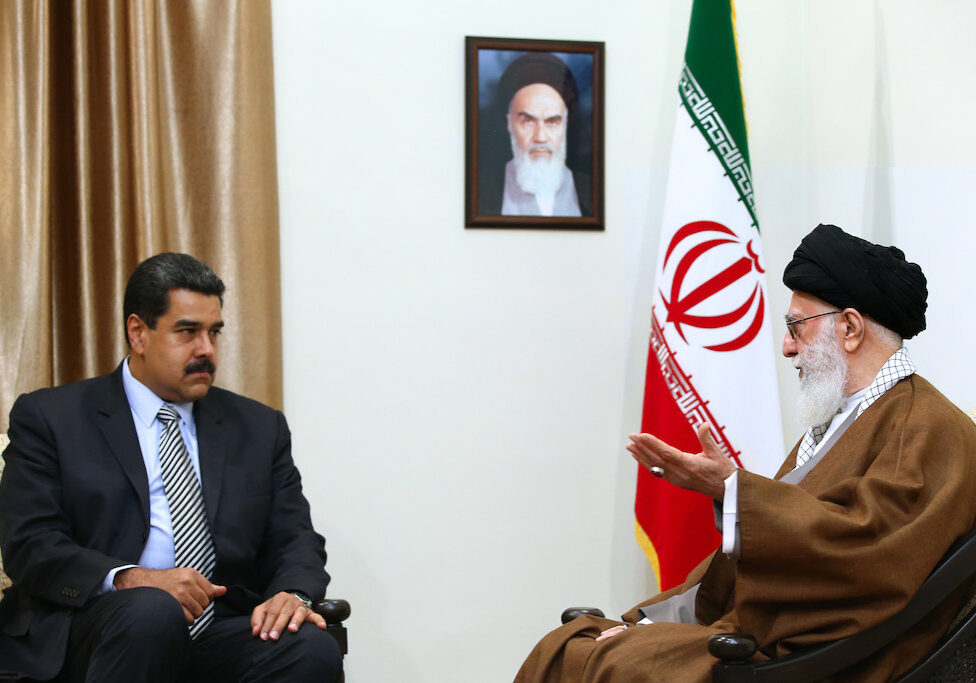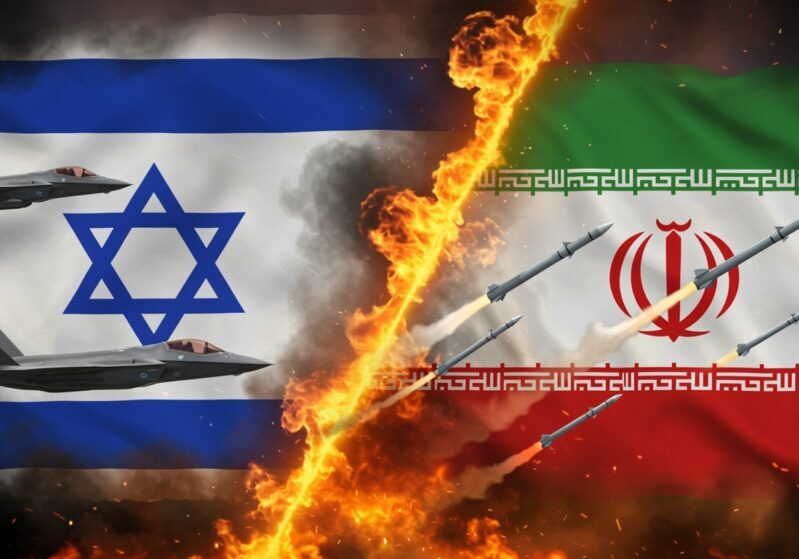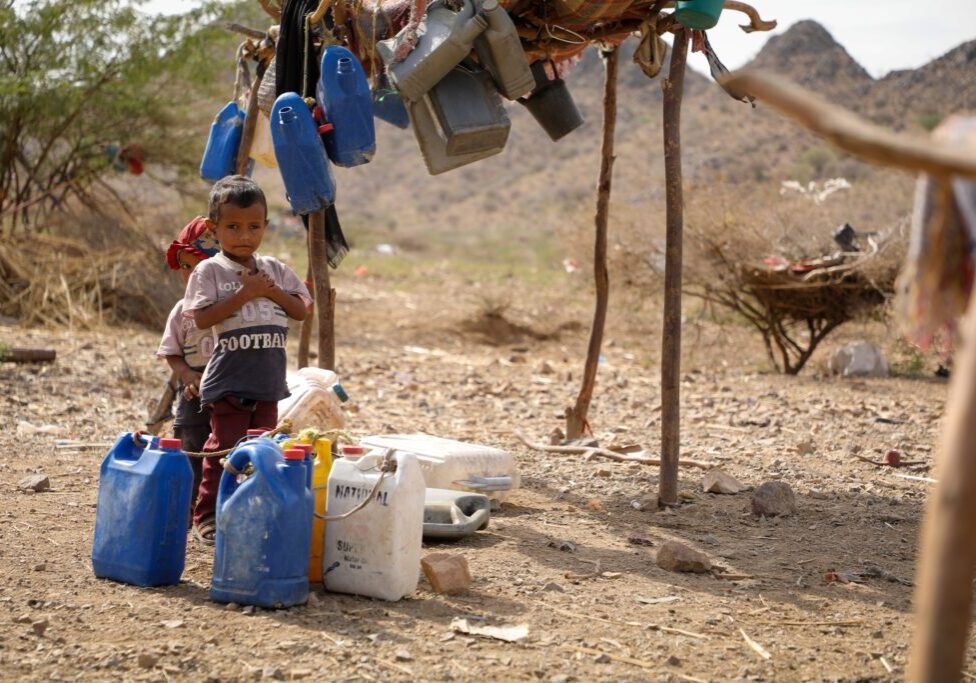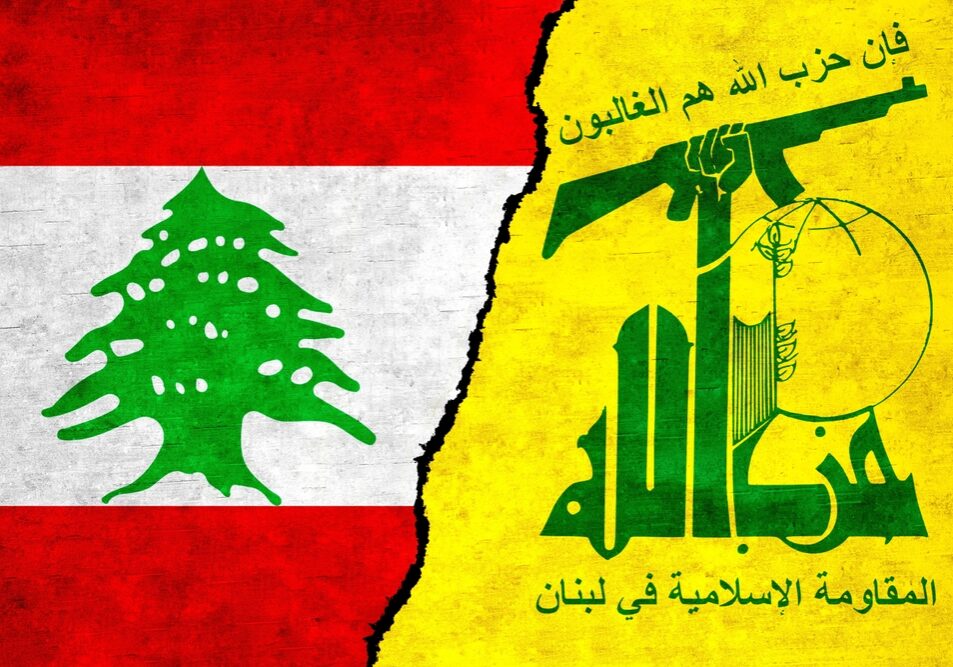Australia/Israel Review
From Tehran to Caracas
Feb 27, 2019 | Oved Lobel
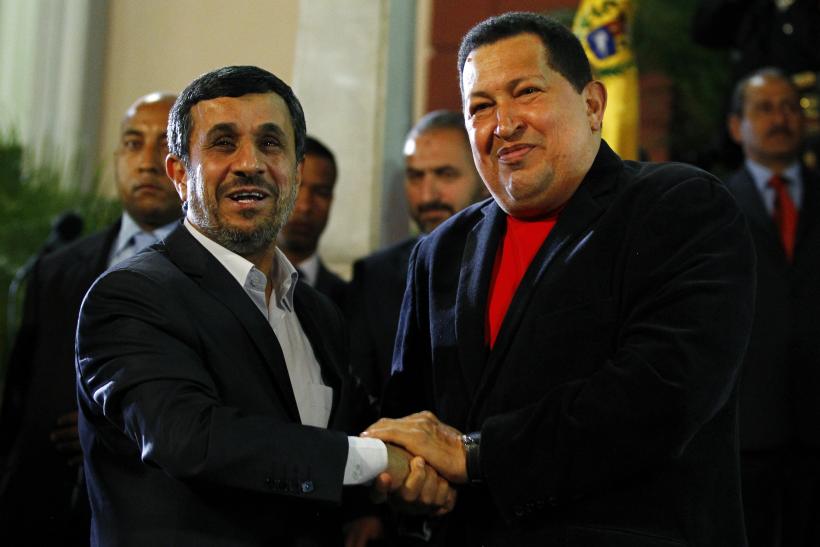
Venezuela and Iran’s Axis of Resistance
Perhaps no two men symbolised the anti-American axis more than Fidel Castro and Ayatollah Khomeini. It should therefore come as no surprise that in early February, embattled Venezuelan President Nicolas Maduro reportedly wrote a letter to Hassan Nasrallah, the Secretary-General of Hezbollah – the Lebanese branch of Iran’s Islamic Revolutionary Guard Corps-Qods Force (IRGC-QF) – thanking him for his resolute support. Nasrallah had earlier pledged all assistance, including military and security specialists, to Maduro, writing that it was only a “small part that [Hezbollah] can offer to President Maduro and to the memory of his predecessor, Hugo Chavez, in return for the support they gave Hezbollah and Iran, In terms of providing funds for the activity of [Hezbollah].”
In the words of Wall Street Journal editor and columnist Mary Anastasia O’Grady, “Venezuela is now a wholly owned subsidiary of Cuba’s 59-year-old military dictatorship.” Basically, the Chavista regime is to Cuba what Hezbollah is to Iran, and Iran’s two-decade relationship with Venezuela is functionally an outgrowth of its long-standing alliance with Cuba.
With Venezuela’s “Bolivarian socialist” regime now facing its worst crisis since it was established in 1998, one obvious question is how this will affect the efforts of Iran and Hezbollah to use Venezuela as a base for their extensive operations in Central and South America.
“Cubazuela”
Venezuela’s descent into the abyss began with the election of Hugo Chavez in 1998. Chavez, a leftist revolutionary military officer, had launched a failed coup in 1992 as the head of the Revolutionary Bolivarian Movement-200 (MBR-200), which he’d established ten years earlier. Following the coup attempt, he was imprisoned for two years and upon release went to Cuba where he was personally groomed by Fidel Castro as his surrogate for the Cuban colonisation of Venezuela.
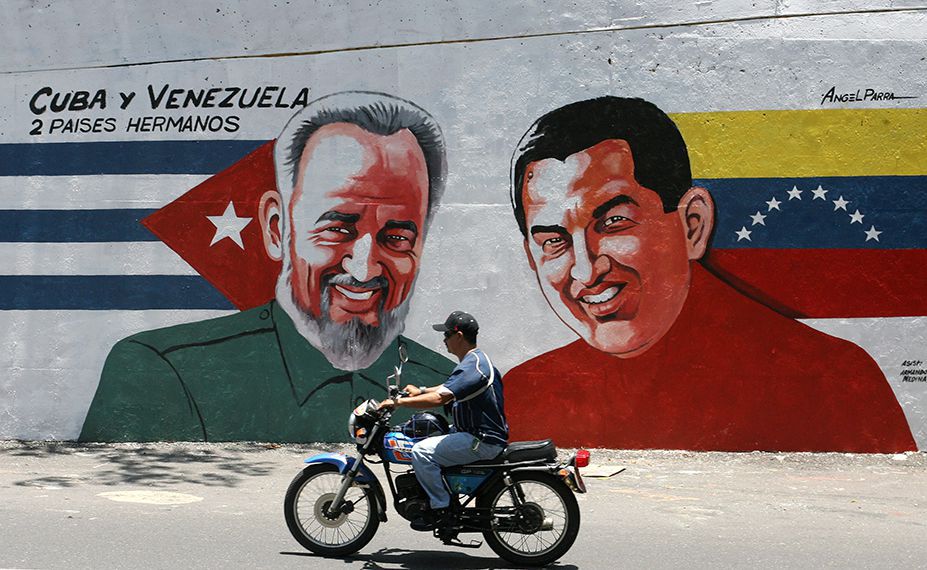
Under Chavez, Venezuela effectively became a colony of Cuba
After winning the 1998 election, Chavez moved quickly to put Cuban intelligence in charge of all his security services, and indeed essentially in charge of every ministry of Venezuela. They are present at all ports, in charge of public records, and even form a special praetorian guard around the President. It also coup-proofed the regime by establishing loyal paramilitaries, or collectivos, which have been terrorising anti-Maduro protestors. Having colonised the country, the Castro regime began extracting its most valuable resource: oil. Tens of thousands of barrels of oil per day were sent back to Cuba, helping keep the dysfunctional, isolated regime afloat and the electricity on. When Chavez was diagnosed with cancer and flown to Cuba for treatment, where he died in 2013, it seems Castro personally engineered the succession process for Maduro, who had accompanied Chavez to Cuba.
Hezbollah and the Narco-Terrorism Nexus
More important than the oil, however, are the drugs. As reported by Christopher Dickey in The Daily Beast, the Castro regime and its intelligence services helped facilitate massive cocaine shipments from the drug lords of Latin America to the United States, partly to help destabilise American society. It already had relationships with the revolutionary terrorist groups in Latin America, most notably the Revolutionary Armed Forces of Columbia (FARC) and the National Liberation Army (ELN) – which to this day are sheltered by Havana. With the takeover of Venezuela, the Cubans could now massively expand their operations and provide safe havens and support for these groups near the border of Colombia. The Chavez regime became Cuba’s “mafia state,” and was informally dubbed “Cartel of the Suns,” the overlord of staggering narcotics trafficking by FARC and other cartels.
Enter Hezbollah. Although its narcotics operations are well-documented in the Tri-Border Area between Argentina, Brazil and Paraguay and elsewhere in Latin America, its operations further north are less often discussed. In a stunning expose for Politico, Josh Myer laid out the US Drug Enforcement Administration’s (DEA) attempts, beginning in 2008, to track and shut down Hezbollah’s global drug trafficking and money laundering operations, among other criminal activity, which it used to fund its activities in the Middle East to the tune of US$1 billion per year.
The operation, dubbed “Cassandra”, had Venezuela at its epicentre, where Myer writes that “beginning in 2007, DEA agents watched as a commercial jetliner from Venezuela’s state-run Conviasa airline flew from Caracas to Tehran via Damascus every week with a cargo-hold full of drugs and cash. They nicknamed it ‘Aeroterror,’ they said, because the return flight often carried weapons and was packed with Hezbollah and Iranian operatives whom the Venezuelan government would provide with fake identities and travel documents on their arrival.”
Intimately involved with both drug trafficking and facilitating Hezbollah and Iranian intelligence operations was one Syrian-Lebanese official, Tareck Al Aissami, the former Vice President and Interior Minister of Venezuela, who the US Treasury Department sanctioned as a drug kingpin a year ago.
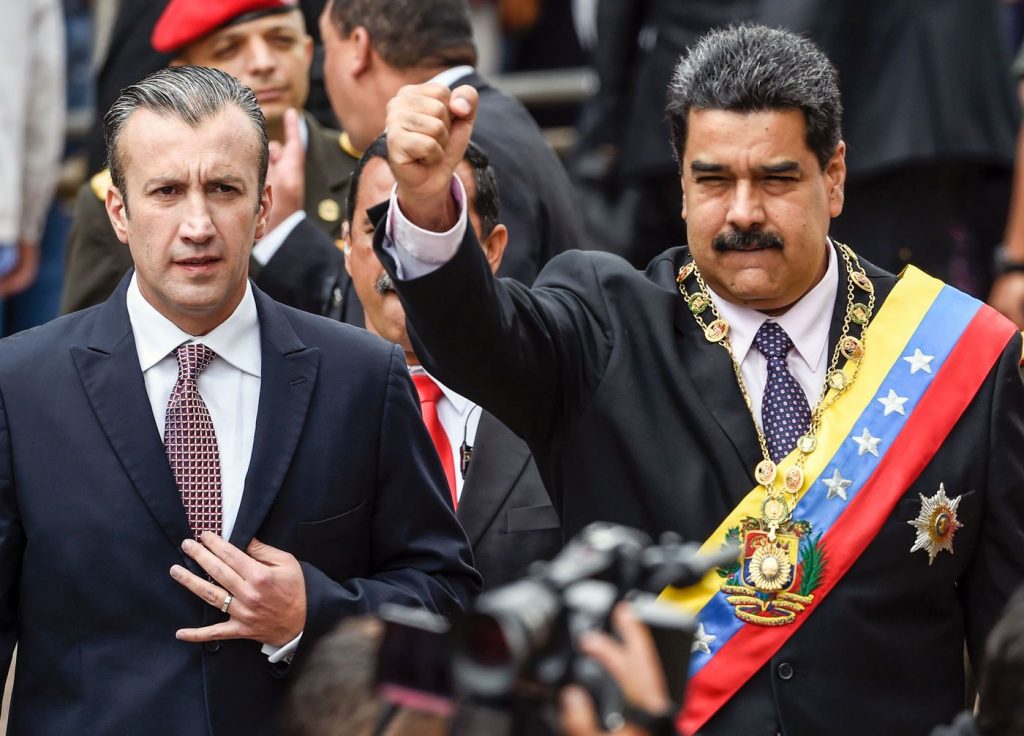
Venezuelan President Maduro (right) with former Vice President Tareck Al-Aissami – strongly linked to both Hezbollah and the drug trade
Another sanctioned individual involved, Ghazi Atef Nassereddine, was overseeing the passport operations in Syria as a dual-hatted Venezuelan diplomat and Hezbollah operative. Still another, Ali Fayyad, a Lebanese arms dealer and Hezbollah operative, was indicted in 2014 for providing FARC with weapons to kill US officials.
Several other citizens and companies, including Venezuela’s state oil company and several Iranian-owned banks, were sanctioned for facilitating Hezbollah and violating sanctions on Iran. According to Roger Noriega, a former US assistant secretary of state for western hemisphere affairs, Iran launders billions of dollars through Venezuela. He told the Washington Free Beacon that Iran had “hundreds of millions [in] virtually every Venezuelan bank today.”
This relationship doesn’t only run one way: Chavez and Maduro were vociferous in their defence of the Assad regime, Damascus of course being the fulcrum of Iran’s Middle Eastern ambitions. In fact, one legislator from the Venezuelan National Assembly, Adel El Zabayar, abandoned his post to go and fight for Assad, and the Chavistas sent fuel to support Assad’s war effort.
The Iran-Cuba Connection
But the role of Venezuela in the Iran-led “resistance axis” goes beyond Hezbollah’s criminal relationship with the Cartel of the Suns, FARC, and other criminal gangs and narco-insurgencies.
Fidel Castro was among the first to recognise Khomeini’s revolutionary regime in 1979, and the partnership between the countries thrived. Jaime Suchliki, writing in Foreign Policy, describes how Cuba and Venezuela helped lead the campaign defending Iran’s nuclear program. Cuba also reportedly helped develop Iran’s unconfirmed industrial biological weapons capacity in the 1990s, and Iran loaned Cuba more than US$1 billion since 2005 and is heavily involved in various projects in the country.
Iranian intelligence operatives cooperated with G2, Cuba’s intelligence agency, to jam American broadcasts to Iran from advanced technical stations in Cuba. According to Suchliki, Iran was involved in Cuba’s colonisation of Venezuela, with the IRGC training and overseeing Venezuelan security services alongside G2. There are even unconfirmed reports that Iran was enriching uranium in Venezuela and helping the Chavez regime prospect for uranium deposits. In 2008, the US Congress sanctioned the Chavez regime for aiding Iran’s nuclear program financially and materially.
Iran has also been involved, alongside Venezuela and Nicaragua – where the IRGC also reportedly has bases – in planning a mega-project, the “Inter-Oceanic Grand Canal” to rival the Panama Canal, though there is as yet no indication when the project might be launched.
In 2010, an unclassified US Defence Department report to the US Congress on Iranian military power noted an increased presence of the IRGC-QF in Venezuela, and there are now increasingly credible reports of a Hezbollah terrorist training camp on Venezuela’s Margarita Island. In 2011, it was reported that Hezbollah had established another base in Cuba.
Venezuela is in the midst of a typical socialist implosion, with millions of refugees, medicine shortages, and malnutrition now commonplace. As pressure builds and more and more governments recognise Venezuelan National Assembly President Juan Guaido as the legitimate interim President until genuine elections can be held, it is likely the IRGC-QF will become more militarily visible alongside current and new militias. There is a substantial Syrian-Lebanese diaspora sympathetic to Iran and Hezbollah in Venezuela upon which they can draw. And they will not be alone.
On Jan. 28, Russian Foreign Minister Sergei Lavrov called Iranian Foreign Minister Javad Zarif to discuss the situation in Venezuela, a day or two after reports circulated that several hundred Russian “PMC Wagner” mercenaries had arrived in the country to help protect Maduro. Russia has significant investments in the country’s oil infrastructure, using its exorbitant loans to take possession of assets, and a longstanding alliance with Cuba, for which Venezuela is an existential red line. China, too, has invested over US$60 billion in the country.
It is very unlikely that Maduro will go without a fight, backed to the hilt by Iran, Russia, the security services and their paramilitary groups. However, should Maduro somehow be removed in a peaceful manner, the capacity of Juan Guaido to renew Venezuelan institutions and root out the narco-terrorism networks running the country does not yet exist. As Colin P. Clarke, a terrorism researcher, recently argued in Foreign Policy, Hezbollah is a bedrock fixture of the country, and even if Maduro is replaced, the regime structures – built on drug cartels, Cuban and IRGC-trained security services and corruption – will likely remain intact. Without substantial security assistance from the United States, he will be hard-pressed to expel or even crack down on Hezbollah, and the odds are against even attempting such an initiative.
Guaido has made it very explicit that he seeks US support, and worse, in the eyes of Iran, that he wants to re-establish relations with Israel. Iran is not going to passively acquiesce to even the possibility that he’ll try and ruin its decades of investment in Venezuela. As US Secretary of State Mike Pompeo recently declared, “People don’t recognise that Hezbollah has active cells [in Venezuela]… The Iranians are impacting the people of Venezuela… We have an obligation to take down that risk for America.”
An increasingly public tug-of-war between Iran and the US seems inevitable regardless of the outcome.

